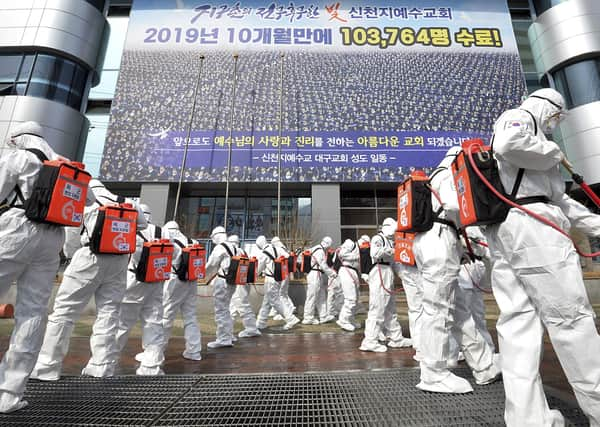Coronavirus is not a joke, it is deadly serious – leader comment


The new form of coronavirus is not a joke. It’s not a scare-story and it’s not ‘fake news’. It’s real, it does pose a threat and we must treat it seriously.
However, we should also not over-react or start behaving irrationally, as has been seen in the racist abuse of people with links to countries where the disease is more prevalent and ridiculous ideas about not eating at Chinese restaurants.
Advertisement
Hide AdAdvertisement
Hide AdWhile most people who catch the disease will experience only a mild illness – thankfully, this is particularly true for children and young adults – about one in five will need hospital care, according to the World Health Organisation. And although most of those patients who receive supportive care from health professionals will recover, there is a chance that some will die. While scientists are working on a vaccine and other drugs, as yet they do not exist.
So we all have a duty to treat this with the seriousness it demands, with the seriousness it is being taken by health officials and political leaders the world over. We must listen to expert advice and, for example, wash our hands properly and regularly, and cover our mouths when we cough with a tissue or in the bend of our elbow.
Health workers are attempting to contain the disease in the places where it has emerged. With our help, they could be successful in doing this, preventing a major epidemic.
This might prompt some self-appointed experts to accuse the actual experts of crying wolf. However, we’d be fools to believe the former and lose faith in the latter because they know what they are doing, they know what the risks are and the others are just guessing.
It is possible that scientists and medics have already prevented a major disease pandemic. In 1997, a three-year-old boy died from viral pneumonia caused by avian influenza in Hong Kong. Over the following ten years, nearly $2 billion was spent on preventing a ‘bird flu’ pandemic and gradually the threat receded.
In 2007, Dr Keiji Fukuda, then the WHO’s global influenza programme coordinator, said: “The single most important lesson from the last decade is that emerging infectious disease threats such as this virus are tenacious and won’t go away, and we need to be just as tenacious in response.”
This remains as true now as it was then.